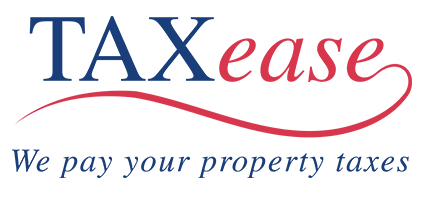What Property Tax Exemptions Are Available in Texas?
The Residence Homestead, Tax Code Section 11.13, is by far the most common property tax exemption in Texas and covers the following exemptions:
- General Residence Homestead
- Age 65 or Older or Disabled
- Manufactured and Cooperative Housing
- Uninhabitable or Unstable Residence
- Temporary Exemption for Disaster Damage
Under the General Residence Homestead, Texas law mandates school districts give a $25,000 exemption to residence homesteads. This exemption will increase by $15,000 to a $40,000 school district exemption for the 2022 tax year with voter approval. Election day is Saturday, May 7, 2022, so make sure you vote.
Effective January 1, 2022, a Texas property tax exemption change will benefit new property owners by allowing the homestead exemption for a partial year. Previously, homesteads acquired after January 1 were not eligible for the exemption until the following tax year.
To qualify for this Texas property tax exemption, a corporation or business entity cannot own the property. Keep in mind that you can’t claim an exemption on another residence homestead in or outside of the state.
Depending on the county where the property is located, a separate homestead exemption of up to 20% of the property’s appraised value, but not less than $5,000, may also be available.
Texas Property Tax Exemptions for Veterans
Tax Code Sections 11.131, 11.132, 11.133 and 11.22 cover the most common Texas property tax exemptions for disabled veterans and their surviving spouses and children.
- Tax Code Section 11.131. A disabled veteran who receives 100% disability compensation due to a service-connected disability and a rating of 100% disabled, or of individual unemployability, is entitled to a total property tax exemption. This exemption also covers surviving spouses of disabled veterans who qualified or would have qualified if it had been in effect at their time of death. Eligibility also depends on if the surviving spouse has not remarried, the property was the spouse’s residence when the veteran died, and the spouse is currently living in the house.
- Tax Code Section 11.132. Provides a partial exemption for residence homesteads donated to disabled veterans by charitable organizations. This also covers surviving spouses who have not remarried. The exemption amount is determined according to the percentage of a service-connected disability.
- Tax Code Section 11.133. The surviving spouse of a member of the U.S. armed services who was killed in action can get a total property tax exemption as long as they have not remarried since the member of the armed services died.
- Tax Code Section 11.22. Veterans may qualify for partial or total exemptions depending on the circumstances. Disabled veterans can get partial exemptions for any property they own. Surviving spouses or children of a deceased, disabled veteran may receive the partial exemption.
Texas Property Tax Exemptions in Agriculture
Technically, the Texas property tax agricultural exemption is not an exemption but an appraisal for land based on agricultural use.
Landowners who use their land for agriculture may qualify for this particular appraisal based on productivity rather than market value. Usually, productivity value is lower, reducing the landowner’s tax burden.
Texas Property Tax Exemptions for Seniors
Property tax exemptions for senior citizens in Texas are mandatory, partial property tax exemptions for homeowners who are 65 or older or who are disabled.
For seniors or the disabled, Tax Code Section 11.13(c) requires school districts to offer an additional $10,000 residence homestead exemption. Tax Code Section 11.13(d) allows any taxing unit the option to decide locally to offer a separate residence homestead exemption of an amount which can’t be less than $3,000.
To qualify for property tax exemptions for senior citizens in Texas, the owner must meet the age requirements and live in the house. If the homeowner passes away, the surviving spouse may still be eligible for the local exemption if they’re 55 or older and own and live in the home.
While these exemptions cover two different demographics, you can’t qualify for both at the same time if you happen to check those two boxes. This means if you’re 65 or older and disabled, you’re not automatically eligible for both exemptions. You’ll have to choose either the Texas property tax exemption for those over 65 or the disability exemption.
Other Property Tax Exemptions in Texas
Although they are not common, there are a few other Texas property tax exemptions that might apply to your situation.
According to Tax Code Section 11.27, you may qualify for a Texas property tax exemption if you have a solar or wind-powered energy device installed on your property. The Texas Comptroller’s website has the property tax forms to apply with the chief appraiser of the appraisal district where your property is located.
And finally, Tax Code Section 11.134 entitles the surviving spouse of a first responder killed or fatally injured in the line of duty to a total property tax exemption on their residence homestead if they have not remarried since the death of the first responder.
Source: https://taxease.com/texas-property-tax-exemptions-to-know-about/


 Facebook
Facebook
 X
X
 Pinterest
Pinterest
 Copy Link
Copy Link



